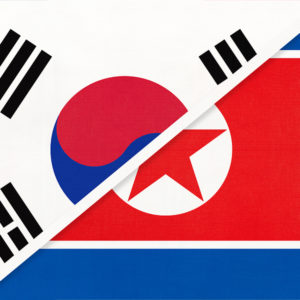Time is running out for South Korea’s President Moon Jae-in.
He has barely more than half a year to leave a legacy as the leader responsible for bringing permanent peace at last to Korea, North and South. He would like nothing better than to step down next May, at the end of his five-year term, with his name inscribed on a declaration co-signed by North Korea’s Kim Jong-un and President Joe Biden or by their negotiators declaring a formal end to the Korean War.
There was an air of desperation in the manner in which Moon advanced the notion of an end-of-war declaration at the United Nations General Assembly. It was as though he were grasping at thin air, looking for any old argument though it’s now plain such a declaration would be worse than useless. In his anxiety to sound convincing, Moon presented the same shallow, meaningless arguments that we’ve been hearing for years.
It’s difficult to know what Moon was thinking when he said the end-of-war agreement would “mark a pivotal point of departure in creating a new order of ‘reconciliation and cooperation on the Korean Peninsula.” And who would believe his claim that Korean War enemies, by proclaiming “an end to the war,” could then “make irreversible progress in denuclearization and usher in an era of complete peace.”
Moon, of course, did not explain how such a document would bring about anything. Do Moon and his advisers really think the North Koreans, having gone along with the end-of-war agreement, would then be willing to talk about getting rid of their nukes?
Kim Jong-un’s talkative younger sister, Kim Yo-jong, made clear the futility of any peace declaration. While an end-of-war declaration was “an admirable idea,” she said, it would be “necessary” to stop “slandering our just exercise of right of self-defense.” In other words, no matter what, North Korea would stick to its nukes and the missiles with which to send them to distant targets.
Neither Moon nor anyone in his administration seems to have seen through the rhetoric. The response from Moon’s people has been to perceive that fresh talks may actually work. As the clock ticks down on Moon’s presidency, North and South Korean negotiators may actually sit down and begin hammering out a statement.
Moon at the UN was deliberately vague. He proposed only that “the two Koreas and the US, or four parties of the two Koreas, the US and China come together and declare that the War on the Korean Peninsula is over.” This remark would appear crafted to mislead people into thinking that signing the agreement would be a simple matter, non-controversial, and easy for all parties to approve.
The fact that Moon seemed uncertain as to China’s participation adds to the complications. Considering that China rescued North Korea from defeat in the Korean War, Chinese support for any end-of-war agreement would appear absolutely necessary. China along with North Korea and the U.S. signed the original Korean War truce at Panmunjom in July 1953 while South Korea’s President Syngman Rhee wanted no part of it. Rhee absolutely refused to dignify talks that would sanctify division of the Korean peninsula.
The fact is the Korean War truce has been one of the most effective end-of-war agreements in history. The two Koreas have not gone to war since then, and South Korea, shielded by the American alliance, has grown into one of the world’s richest, most productive nations. Moreover, South Korea has evolved as a democracy in which dissent and political opposition are possible despite repression of the media by Moon’s government.
Basically, Moon knows very well the Korean War is long over. The last thing the North would want is an agreement that accomplished any purpose other than weakening the will of the South Koreans and their American ally to stand up against Kim Jong-un’s blatant desire to reach a deal on nobody’s terms but his own.
The next step after an end-of-war agreement would be a “peace treaty” calling for the withdrawal of all U.S. troops and bases. North Korea, while loudly demanding the Americans make sweeping concessions, would not agree on reducing its own forces, pulling back thousands of artillery pieces trained on the South, and canceling its nuclear program. The Chinese would be ready to send in troops as in 1950.
Without the backup of the U.S., the South would be in greater danger than at any time since the Korean War.

